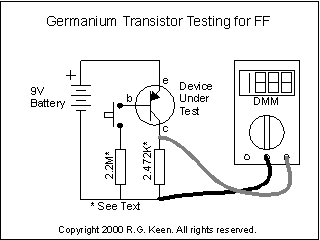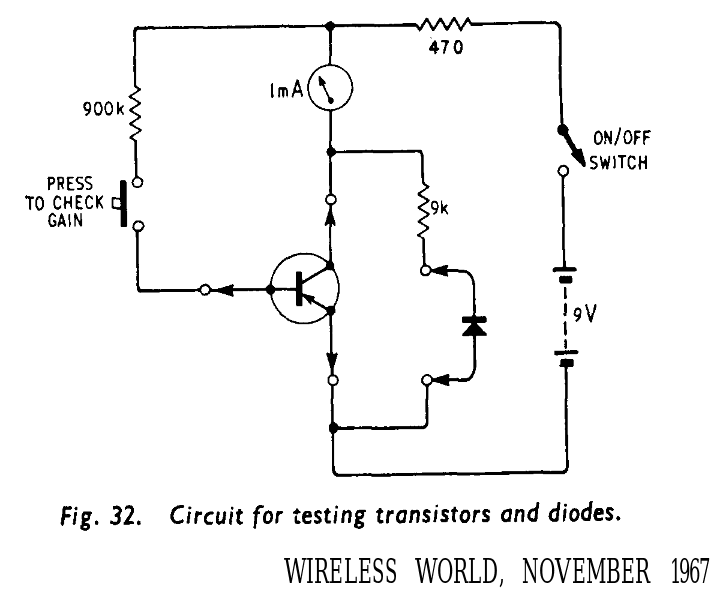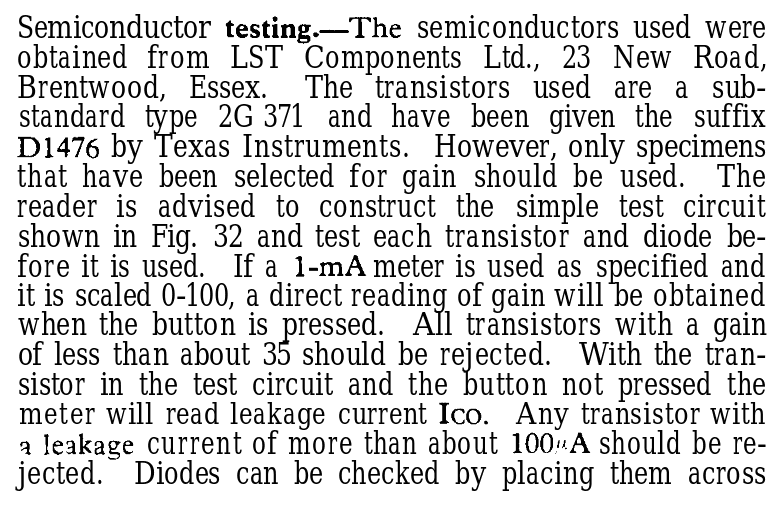So I had 3 transistors in my archives, one 2N1926 and two 2N396.
My first test with the attempted Xtal oscillator failed. I had tested the 3 with my DMM and found inconsistent results.
@jaromir.sukuba pointed this to me : http://www.geofex.com/article_folders/ffselect.htm

I built the device and went to work. I had to measure twice because the values varied all the time :
| Type | off (mV) | on (mV) | leakage (µA) | gain |
| 2N1926 | 600, 1000 | 1370, 1850 | 242, 404 | 77, 85 |
| 2N396 | 170, 122 | 940,857 | 68, 49 | 77, 73 |
| 2N396 | 540, 480 | 1600, 1530 | 210, 194 | 106, 105 |
It's... weird. But also eye-opening !
The leakage changes constantly, but the gain is pretty stable with this system.
A pair of transistors have pretty high leakage and appeared as high gain, my DMM measured 150 for two and 100 for one... But the 2N1926 is the least good of the pack.
When I receive the eBay orders, I'll try to sort each transistor to avoid the highest leakages.
20170119:
I just found some more germanium testing advices from 1967 at http://www.smrcc.org.uk/members/g4ugm/Manuals/wirelessworldcomputer.pdf


 Yann Guidon / YGDES
Yann Guidon / YGDES
Discussions
Become a Hackaday.io Member
Create an account to leave a comment. Already have an account? Log In.
Leakage of transistors is temperature dependant - that may be reason of unstable reading.
Are you sure? yes | no
heating through the 2K resistor and the 9V also influences the reading. It's scary :-D
Fortunately, we're doing digital stuff, at only 4.5V, which heats less and is not much sensitive to variations.
Are you sure? yes | no